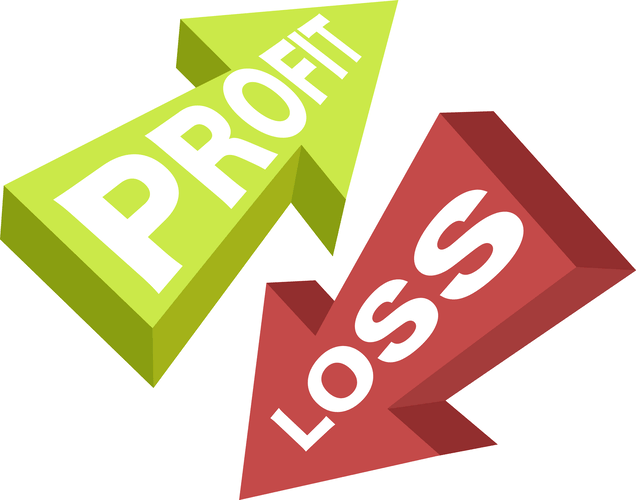
Using the data you gain from keeping a ledger, your next step will be to generate and prepare financial reports for analysis. The major reports to include are the profit and loss, the balance sheet, and a cash flow analysis. Additionally, the aged accounts receivables and aged accounts payables reports are helpful in knowing which customers have not paid and which vendors are yet to be paid. These reports will help you gain greater insights into the financial health of your small business. Bookkeeping is the regular practice of updating a company’s financial records to reflect all financial transactions, credits, and debits.

Three basic accounting principles for small business owners
Plus, there are FAQs at the beginning of the book to clarify some common issues. That’s why Bookkeeping for Small Business by Andy Lymer and Nick Rowbottom is a great pick. Simon Litt is the editor of The CFO Club, specializing in covering a range of financial topics. His career has seen him focus on both personal and corporate finance for digital publications, public companies, and digital media brands across the globe.
Bookkeeping Options for Small Business Owners
Steer clear of common mistakes like not keeping receipts, miscategorizing expenses, and mixing personal finances with business ones. “These can be avoided by maintaining meticulous records and using the right software,” Pierce says. Answer a few questions about your accounting software needs and we’ll send you up to five customized recommendations. Unfortunately, even though QuickBooks Online is our top pick, it’s also our priciest one. The cheapest QuickBooks plan starts at $30 a month—higher than any of our other recommended bookkeeping solutions.

Wave Accounting: Budget pick
These are the best bookkeeping books for small business can help you grow your business accounting skills. “Profit First” is not an accounting book in the strictest sense, but it tackles the challenges of cash management beautifully. Your accounting process will stay the same as it always has, but if you employ the “Profit First” method in your business, you will make small business bookkeeping your paycheck and your profit a priority rather than an afterthought. The authors offer a deep dive into understanding financial statements and value investing. Through exploring income statements, balance sheets, and cash flow statements, readers will learn how to analyze and interpret financial data to identify valuable investment opportunities just like Buffett.
If your business is a side project with a limited budget, you can probably get by going the DIY route. You might still consider consulting with a CPA or bookkeeper at the beginning, just to make sure you’re doing everything right. But most businesses in the hobbyist stage can get by using either a simple spreadsheet (like our free Income Statement Template) or one of the many accounting or bookkeeping software solutions on the market. Most accounting software today is based on double-entry accounting, and if you ever hire a bookkeeper or accountant to help you with your books, double-entry is what they’ll use.
One leading software application is Intuit’s QuickBooks, and the book QuickBooks Online for Beginners 2023 explores small business accounting through the lens of that program. As its title suggests, Small Time Operator focuses on solo practitioners, home businesses, https://www.bookstime.com/articles/enrolled-agent-salary small ecommerce businesses, and contractors juggling clients. If this describes you, you may find valuable financial and accounting guidance in this book, which includes best practices for bookkeeping, tax reporting, and financing your business.
- Start your free trial with Shopify today—then use these resources to guide you through every step of the process.
- Bookkeeping focuses on recording and organizing financial data, including tasks such as invoicing, billing, payroll and reconciling transactions.
- Look for important features to your business, such as invoicing, expense tracking, bank reconciliation, and financial reporting.
- With Boyd’s guide, you’ll navigate through the world of cost accounting with ease and confidence.

For example, you may have estimated certain invoices that are later solidified with an actual number. In this guide, Brodersen and Pysh illuminate the accounting principles employed by Warren Buffett himself. By dissecting Buffett’s unique approach to accounting and investing, they provide readers with invaluable insights into making informed and value-driven investment decisions. “Wiley GAAP 2023” is a thorough examination and application guide of GAAP (Generally Accepted Accounting Principles). Authored by Joanne M. Flood, it may be dry, but it’s an indispensable resource for accounting professionals dealing with detailed financial reporting rules.
- Most bookkeepers and accountants use the same popular software small-business owners do, especially QuickBooks Online, Xero, and Sage.
- Small businesses often work with tax advisors to help prepare their tax returns, file them and make sure they’re taking advantage of small-business tax deductions.
- Its chart of accounts, journal entry generation, and multi-business management make it a good fit for small and midsize businesses alike.
- And unlike most other bookkeeping software, Xero includes basic inventory tracking with every plan, which is another reason we love it for product-based freelancers and small businesses.
- At Business.org, our research is meant to offer general product and service recommendations.

You also can’t pay on a month-to-month basis, unlike a few others on our list. Because every client and their needs vary so widely, we provide flexible, unique pricing for every client. Get in touch with one of our specialists today to get your quote or click here to get started. Keep your skills up to date, evolve the depth in which you know your preferred platforms and stay apprised as their features change, as well. You can always attend professional events, too, such as conferences and networking events.



